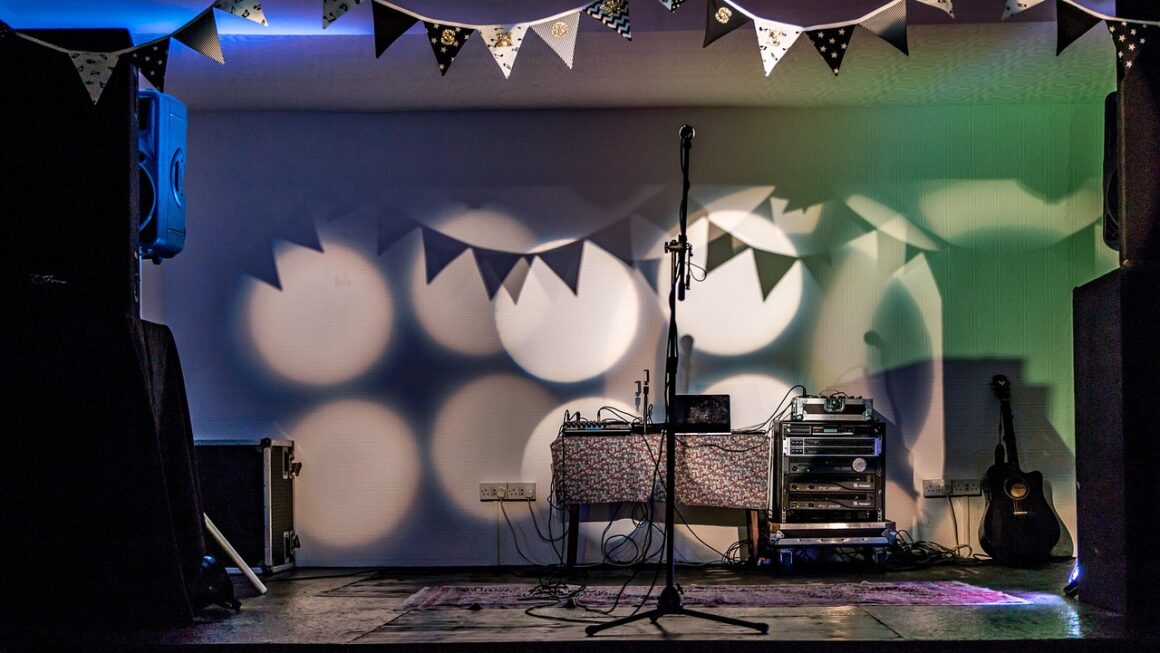Pop culture. The phrase itself conjures a whirlwind of images: viral dances, trending songs, blockbuster movies, and fleeting fashion crazes. But it’s more than just entertainment; it’s a reflection of our collective values, anxieties, and aspirations, a constantly evolving tapestry woven from the threads of music, film, television, fashion, technology, and social media. Understanding pop culture is understanding ourselves, our society, and the forces shaping our world.
What Exactly is Pop Culture?
Defining the Elusive
Pop culture, short for popular culture, is the prevailing set of ideas, values, trends, and artifacts that are dominant in a society at a given point in time. It’s the cultural glue that binds large groups of people together, giving them shared experiences and points of reference.
- Key Components: It’s often characterized by accessibility, widespread appeal, and commercial influence. Think of the latest Marvel movie everyone is talking about, the song topping the charts, or the viral challenge sweeping TikTok.
- Dynamic Nature: Pop culture is inherently fluid. What’s “in” today can be “out” tomorrow, constantly being reshaped by new innovations, social movements, and artistic expressions.
Distinguishing Pop Culture from High Culture
While pop culture seeks broad appeal, high culture often caters to a more elite or intellectual audience. Think opera, classical music, or avant-garde art. The distinction, however, isn’t always clear-cut, and elements of high culture can sometimes crossover into the popular realm and vice-versa.
- Accessibility: Pop culture is generally more accessible and easier to understand than high culture, which often requires specialized knowledge or training.
- Commercialism: Pop culture is frequently driven by commercial interests, whereas high culture is often supported by patronage or grants.
- Audience: Pop culture seeks to reach a mass audience, while high culture often appeals to a smaller, more discerning group.
The Power of Pop Culture: Influence and Impact
Shaping Social Norms and Values
Pop culture is a powerful force in shaping our social norms, values, and beliefs. Through movies, TV shows, and music, we are exposed to different perspectives and ideas that can influence our attitudes and behaviors.
- Representation Matters: Pop culture can play a crucial role in promoting diversity and inclusion by showcasing underrepresented groups and challenging stereotypes. The success of films like “Black Panther” demonstrated the audience demand for diverse stories and representations.
- Social Commentary: Artists and creators often use pop culture as a platform to address social and political issues, sparking conversations and raising awareness. Shows like “The Handmaid’s Tale” have sparked discussions about gender equality and dystopian societies.
Economic Impact: A Multi-Billion Dollar Industry
Pop culture is a major economic driver, generating billions of dollars in revenue each year. From movie ticket sales and music streaming to fashion trends and video game purchases, pop culture fuels a vast and interconnected industry.
- Merchandising and Licensing: The sale of merchandise and licensed products associated with popular movies, TV shows, and video games is a lucrative market. Think Star Wars toys, Harry Potter-themed merchandise, and branded apparel.
- Tourism: Popular cultural landmarks and events attract millions of tourists each year, contributing to local economies. The popularity of “Game of Thrones” significantly boosted tourism in Northern Ireland.
The Rise of Social Media and Online Culture
The advent of social media and online platforms has fundamentally transformed pop culture, creating new avenues for content creation, distribution, and consumption.
- Democratization of Content Creation: Social media platforms like TikTok and YouTube have empowered individuals to become content creators and influencers, bypassing traditional gatekeepers.
- Viral Trends and Memes: The internet has become a breeding ground for viral trends and memes that rapidly spread across the globe, shaping online culture and influencing offline behavior.
- Direct Fan Engagement: Social media allows fans to connect directly with their favorite celebrities, artists, and brands, fostering a sense of community and influencing creative decisions.
Navigating the Landscape: Critical Consumption and Awareness
Understanding the Messages Behind the Trends
It’s crucial to critically examine the messages and values promoted by pop culture, rather than blindly accepting everything we see and hear.
- Media Literacy: Developing media literacy skills is essential for discerning credible information from misinformation and identifying potential biases.
- Awareness of Commercial Influence: Understanding how commercial interests shape pop culture can help us make informed choices about our consumption habits.
Protecting Yourself from Negative Influences
While pop culture can be a source of entertainment and inspiration, it can also have negative impacts, particularly on vulnerable individuals.
- Body Image and Self-Esteem: The unrealistic beauty standards often portrayed in pop culture can negatively affect body image and self-esteem.
- Cyberbullying and Online Harassment: Social media platforms can be breeding grounds for cyberbullying and online harassment, which can have serious consequences for mental health.
Cultivating a Balanced Media Diet
Moderation is key. Balancing your consumption of pop culture with other activities, such as reading, spending time outdoors, and engaging in real-world social interactions, can help maintain a healthy perspective.
- Variety is the Spice of Life: Expose yourself to a wide range of cultural experiences, including art, literature, music, and film from different cultures and perspectives.
- Disconnect to Reconnect: Regularly disconnect from social media and other digital distractions to focus on real-world relationships and activities.
The Future of Pop Culture: Trends and Predictions
The Continued Rise of Streaming Services
Streaming services like Netflix, Disney+, and Spotify are poised to continue dominating the entertainment landscape, offering consumers convenient access to a vast library of content on demand.
- Original Content is King: Streaming services are investing heavily in original content, driving competition and expanding the range of choices available to viewers and listeners.
- Personalized Experiences: Streaming services are using algorithms to personalize recommendations and tailor content to individual preferences.
The Metaverse and Virtual Experiences
The metaverse, a virtual world where users can interact with each other and digital objects, is expected to play an increasingly prominent role in pop culture.
- Virtual Concerts and Events: Artists are already experimenting with virtual concerts and events in the metaverse, offering fans immersive and interactive experiences.
- Virtual Fashion and Avatars: The metaverse is creating new opportunities for virtual fashion and avatars, allowing users to express their individuality and creativity in new ways.
The Power of Niche Communities
While mass culture will continue to exist, there’s a growing trend towards niche communities and subcultures forming around shared interests and passions.
- Online Communities and Forums: Online communities and forums provide spaces for fans to connect with each other, share their enthusiasm, and create their own content.
- Micro-Influencers: Micro-influencers, who have a smaller but highly engaged following, are becoming increasingly influential in shaping trends and driving consumer behavior.
Conclusion
Pop culture is a multifaceted and ever-changing phenomenon that profoundly impacts our lives. By understanding its dynamics, critically examining its messages, and cultivating a balanced media diet, we can navigate the landscape with awareness and appreciation, harnessing its power for good while mitigating its potential downsides. The future of pop culture promises to be even more diverse, immersive, and personalized, reflecting the evolving needs and desires of a global audience. Embracing change, fostering critical thinking, and promoting inclusivity will be key to shaping a pop culture that reflects the best of humanity.




